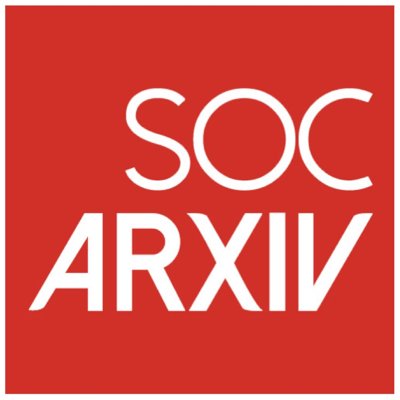In a recent post, we argued that preprints are having a moment. Here’s further proof: this week, the Center for Open Science and the University of Maryland launched a new repository for social science research, called SocArXiv (the name comes in part from the well-known preprint repository arXiv). Currently, there is a temporary home for the repository here, with a more robust platform coming in the near future. In addition to preprints, SocArXiv also accepts conference papers, working papers, datasets and code. The project is being led by Philip N. Cohen, a Professor of Sociology at the University of Maryland. The steering committee includes scholars, librarians, and open access advocates.
Interested in submitting? Just e-mail socarxiv-Preprint@osf.io from your primary e-mail address. Put the title of your work in the subject line, and the abstract in the body of your e-mail. Then attach the work as a PDF or Word file. Finally, hit send. Your scholarship should appear on the site shortly and you should be automatically registered for an Open Science Framework account. Use this account to go into the page for your work on the site and add any relevant tags. Just make sure that you have the rights to anything you post. If you’re not sure, check your publication agreement or search SHERPA/RoMEO, a database of publisher copyright and self-archiving policies. And remember: this method of submission is only temporary. Once the permanent SocArXiv platform is up and running we will update this post.
Some researchers may wonder why they should post their work to SocArXiv, when there are so many other options, including another open access repository, the Social Science Research Network (SSRN). SSRN was founded in 1994 by Wayne Marr, a professor of finance, and Michael Jensen, and professor of business administration. It includes scholarship from a range of disciplines, from accounting to economics to political science. The business model of SSRN has always been different than most other open access repositories. Unlike arXiV, which is based at Cornell University and funded by grants and library support, SSRN is a privately-held corporation. While all deposited papers are free for users to read, SSRN also offers paid content to users through its partnerships with other publishers (such as Wiley-Blackwell). In May of this year, a major change came to SSRN when the platform was bought by Elsevier, a large Dutch company that publishes some of the world’s top journals. Elsevier also owns the reference manager Mendeley. SSRN’s management claims that all the scholarship on the site will remain free. They also argue that Elsevier’s ownership will only make SSRN better, providing them with the resources they need to make much needed improvements in the design and functionality of the site. Many scholars, librarians, and other experts, however, are worried. They wonder what Elsevier will do with all the scholarly data it now owns, and how the company will try to monetize that data. Similar concerns have been raised about other popular scholarly sharing platforms, including Academia.edu and ResearchGate. Kevin Smith, the Dean of Libraries at the University of Kansas, has called this trend “the commodification of the professoriate.” SocArXiv, then, offers a non-commercial alternative that puts scholars’ interests first.

